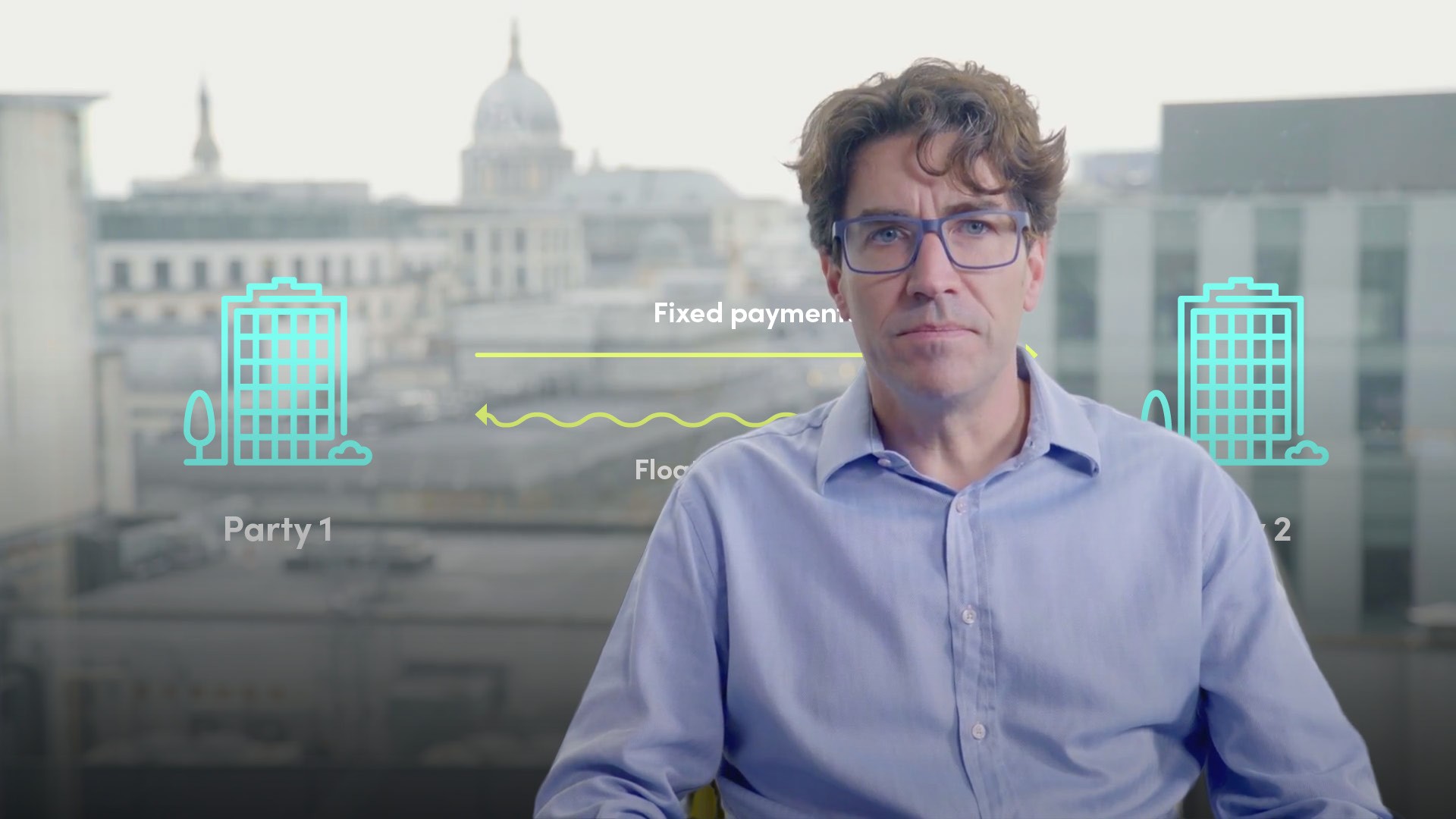
Swap
In financial markets, a swap is an OTC contract between counterparties to exchange cash flows on a notional principal amount for a set period of time. Swaps are predominantly based on interest rates and FX, but they are also constructed across a wide range of other products, including commodities, credit defaults, equity, equity indices and inflation. Most swaps are executed by investment banks, which act as swap counterparties. At the end of the first half of 2021, the notional amount of swaps outstanding was almost USD610 trillion, according to the Bank for International Settlements. That is equivalent to roughly 6.5 times world GDP. In a vanilla interest-rate swap, one counterparty pays fixed and receives floating. In other words, one counterparty agrees to pay the other a fixed rate of interest on pre-agreed dates at a pre-agreed rate on a notional principal amount until the swap maturity. The other leg of the swap involves the second counterparty agreeing to pay to the first an agreed spread over a floating-rate benchmark (traditionally Libor but now shifting to risk-free rates). On each payment date, the payments due on each leg are calculated and a netted amount is transferred to the relevant counterparty. No principal is exchanged.


